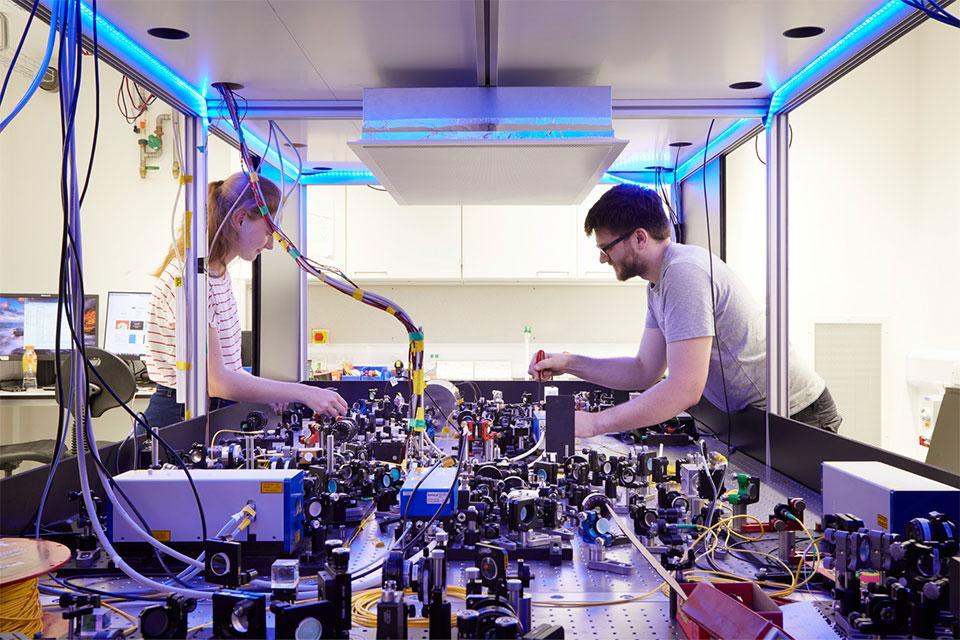Beecroft Building
Abstract
Over the past two decades, there has been rapid development in technologies for both digital quantum computing and analogue quantum simulation. With progress towards quantum advantage for problems designed to test the quantum hardware, there is increasing focus on when we will observe a practical quantum advantage for relevant problems with applications in science or industry. I will discuss the state of the art for simulation of many-body quantum problems, which can be explored either in digital or analogue quantum simulation. Simulating quantum many-body dynamics provides a particularly good test case, because this is both implemented in ongoing experiments, and challenging for classical calculations. The classical complexity is linked directly to the build-up of entanglement and scrambling of quantum information in these systems.
For atomic, molecular, and optical (AMO) quantum simulators, especially neutral atoms and trapped ions, we can build microscopic models of the underlying processes, including noise and decoherence. This gives us a theoretical handle on how errors propagate, and allows us to analyse in which regimes the outcome of an analogue simulation will be reliable. I will compare our expectations for quantum advantage in current experiments with corresponding classical calculations, and also compare with the requirements for digital quantum computing in the same class of problems. As an outlook I will ask whether we can overcome decoherence limits to the useful size scale of quantum simulators, using long-range interactions also available in AMO systems.

